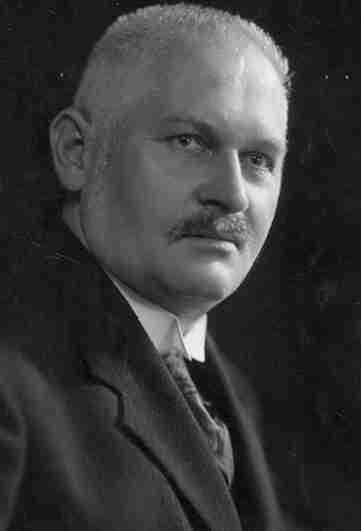As a nation, the Poles made an enormous contribution to the military struggle against the German occupier during World War II. However, it is also worth remembering the pre-war political elite that formed the civilian apparatus of the underground state. One of its representatives was Cyryl Ratajski, who provided great service to society in the Second Republic as Mayor of Poznań.
He was born on 3 March 1875 in Zalesie Wielkie, in the family of a local innkeeper. Cyryl was active in the independence underground and was a member of the National League. He graduated in law and became involved in political activity, collaborating with Wojciech Korfanty. As a social activist, he was active in the ” Sokół” Gymnastic Society and promoted tourism and knowledge of the countryside. During the Wielkopolska Uprising he was a courier between the uprising authorities and abroad.
In 1922, Ratajski became mayor of Poznań, an office he held until 1934. During his tenure, he expanded the city’s boundaries and developed the public transport network. He also took part in many other activities, including international projects. He earned the respect of the citizens.
After the outbreak of World War II, Ratajski returned to the office of mayor, replacing the previous authorities who had fled the threatened city. After the Germans entered, he held office for a few more days, after which he was replaced by a German official. Ratajski exercised passive resistance at the time, refusing to officially hand over the keys to the city to the Germans. After his expulsion to the General Government, he adopted the false name Celestyn Radwański, which accompanied him until his death.
On 3 December 1942, General Władysław Sikorski appointed Ratajski as the Delegate of the Polish Government at Home in the General Government. The former Mayor of Poznań created the entire civilian apparatus of the Polish Underground State, on the model of the pre-war system creating departments, or equivalents of ministries. The underground administration numbered 30,000 people in total, and the Department of Internal Affairs, for example, had outposts in every province.
Ratajski, however, did not escape trouble during the German occupation. Even his election as a delegate was protested against by some political parties. He also believed that the military authorities had to be subordinated to the civilian ones, which did not please the ZWZ-AK command. This coincided with the deterioration of Ratajski’s health, and he resigned on 5 August 1942. He died shortly afterwards, on 19 October in Warsaw.





